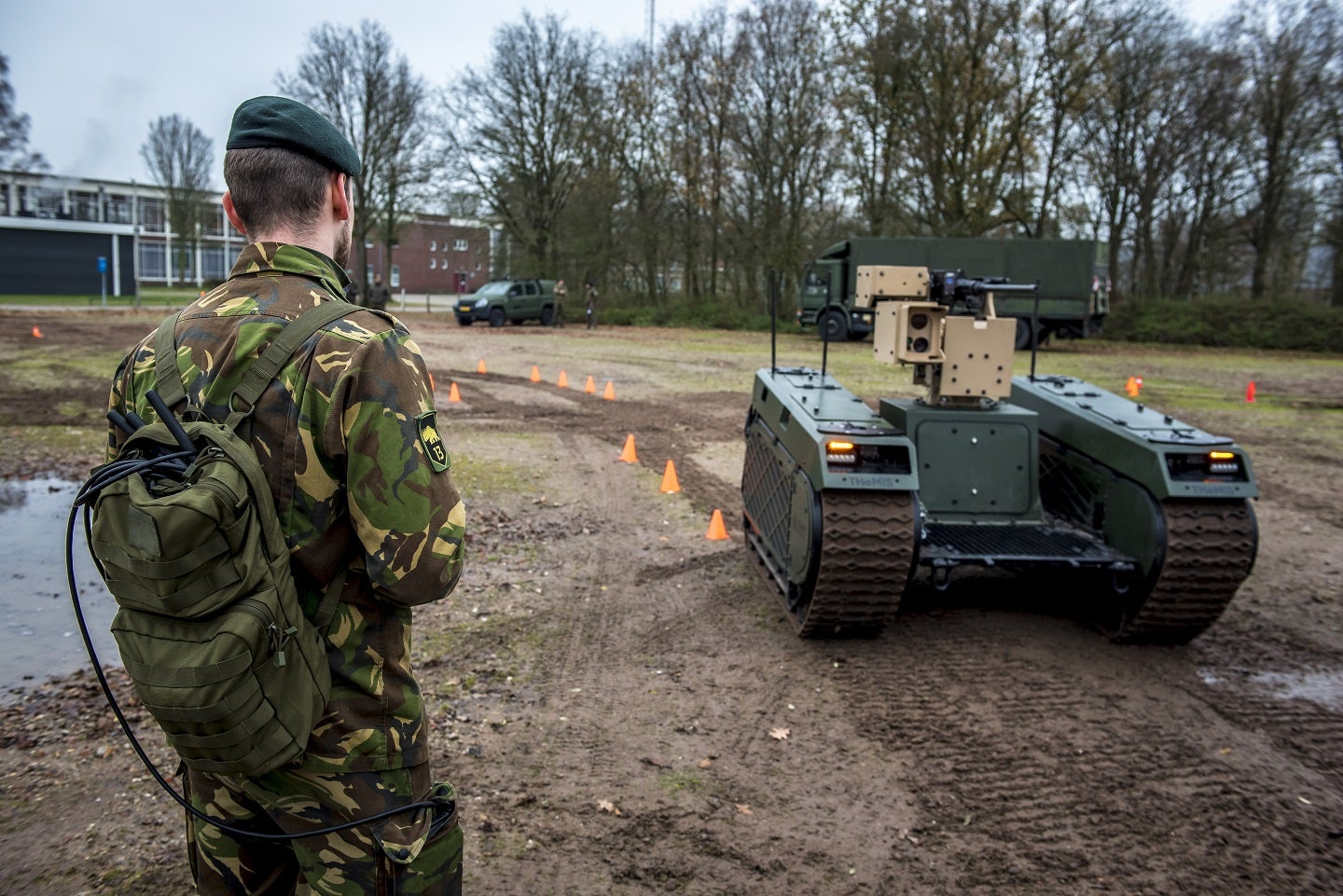
Western European countries have pledged a greater commitment to their defence industries as Russian forces engage Ukraine in a war of attrition that is taking a toll, not just on them, but on the continent as a whole.
Despite all the talk and promises of ramping up their defence industry investment the continent marks the anniversary of the conflict, western European countries seem to be increasingly upstaged by their eastern neighbours.
Nearer to the front line, countries like Poland and the Baltic States are demonstrating an admirable response to the conflict as they are fulfilling relatively larger commitments to their respective defence industries.
None more so than Estonia, where the Tallinn-based Milrem Robotics company has brought the largest investment to the Estonian defence industry to date, according to a GlobalData webinar that provided expert analysis in an overview of the Ukraine Impact and Q4 2022 on 27 February.
The details of the deal saw the United Arab Emirates (UAE) state-owned conglomerate EDGE Group purchase a majority controlling share in Milrem Robotics.
GlobalData land domain analyst, Tristan Sauer, stated in the webinar that Milrem “received support from its domestic government and gained EDA investment” on top of the acquisition, while “failure of major European firms to invest in smaller competitors is a testament to the bureaucratic failures of the EU defence bloc”.
Milrem acquisition
Mansour Al Mulla, managing director and CEO of EDGE Group, stated: “There is great potential here for both companies, and our investment in Milrem will allow it to take advantage of EDGE’s considerable resources to offer our customers operating in perpetually changing operating environments a more robust portfolio of superior autonomous systems at competitive costs.”
By tapping into the UAE’s defence resources, alongside its vast amount of capital, the Estonian Robotics company has harnessed a valuable source that can bolster Europe’s defence security.
On top of this funnel of security assurance, it seems the company’s product portfolio will also contribute to the growing area of robotics and unmanned vehicles in the defence industry.
When showcasing its latest uncrewed ground vehicles (UGVs) at the 2023 International Defence Exhibition and Conference (IDEX), Milrem Robotics CEO, Kuldar Väärsi, noted that “in ten years Milrem Robotics has evolved from a vehicle developer into a system integrator in the robotics domain”.
Väärsi added: “Over the next years we will increase our product protfolio in terms of new autonomous ground systems and work on manned-unmanned teaming solutions.”
Meanwhile, Germany, Europe’s leading economy, has pledged to create a €100bn special defence fund, as well as sending Leopard 2-type main battle tanks (MBTs) to Ukraine.
While this demonstrates a significant change of stance from their traditional pacifism, in the grand scheme of things, a lot of this has yet to materialise or have any implementation at all.
Polish defence efforts
Similarly, Poland has expanded its own defence commitments on a grand scale compared to the insufficient efforts of western neighbours.
GlobalData’s Macroeconomic Report on Poland states that Poland has also exploited the UAE avenue. In September 2022, Poland and the UAE announced they would boost bilateral relations in various fields, especially economic and trade through joint economic and investment cooperation.
Moreover, both nations also proclaimed to enhance opportunities for trade exchange and establishment of investment projects in sectors of common interest since Poland is the UAE’s second trading partner in eastern Europe.
Additionally, Poland and the UAE also discussed ways to develop and exchange best experiences and practices to improve efficiency and effectiveness of the energy sector performance in both countries.
The Polish government also reached out globally for its defence contractors. A deal was made with South Korean defence firm, Hanwha in January 2023, as the Polish Army procured 180 K2 Black Panther MBTs. The deal extends to the procurement of 48 FA-50 fighter jets and howitzers.
This deal has reverberated in the MBT market, as it indicates how countries like Poland have lost confidence in the European market for the German-made Leopard 2A7 because of a reluctant German government to supply growing demand.
Poland sought to be unconstrained in its ability to mobilise in a potential future conflict, much like the rest of eastern Europe, as they turn to support themselves by other means due to western inactivity.



